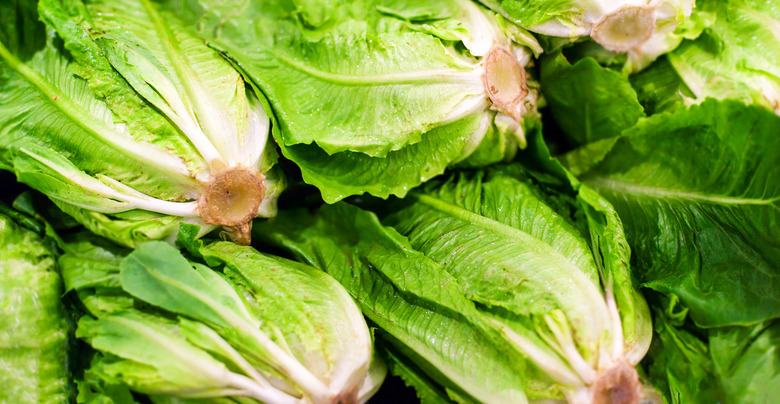CDC Says Romaine Lettuce Is Nearly Safe Again As E. Coli Outbreak Worsens
On May 16, the Centers for Disease Control and Prevention released an update indicating that the E. coli outbreak linked to romaine lettuce from the Yuma region of Arizona had spread to three additional states (Iowa, Nebraska, and Oregon) and sickened 23 more people since its last update on May 9. However, the agency explained that stores and restaurants are now likely clear of all contaminated lettuce, providing hope that the outbreak may finally come to an end.
The Food and Drug Administration released an update confirming that all production and distribution of romaine lettuce from the Yuma region had halted; the final date of harvest was April 16. Since romaine lettuce has a 21-day shelf life, the FDA said, "It is unlikely that any romaine lettuce from the Yuma growing region is still available."
Of course, "unlikely" is not a complete vote of confidence that no additional illnesses will arise, but it seems promising.
The current total case count is 172 illnesses in 32 states. There has been one death linked to the outbreak, along with 75 hospitalizations and 20 cases of hemolytic-uremic syndrome, a type of kidney failure.
As for the additional illnesses that surfaced between the May 9 and May 16 updates, the CDC has a likely explanation. They claim that these victims were initially infected when contaminated lettuce "was likely still available in stores, restaurants, and in peoples' homes." It takes an average of two to three weeks after the point of infection for the CDC to be notified of an E. coli case.
The CDC has removed its instructions to throw away romaine lettuce if you cannot confirm its area of production. Romaine lettuce is probably safe to buy from stores and restaurants without risking E. coli from the outbreak.
The specific source of the bacteria has yet to be found, and the FDA investigation is ongoing. Multiple lawsuits have been filed against restaurants and suppliers by the law firm Marler Clark, which specializes in foodborne illness cases. The goal of these lawsuits, according to the firm's managing partner Bill Marler, is to "get to the bottom of where the contamination occurred."
The Yuma region of Arizona supplies "virtually all lettuce sold in [the United States] during the winter months," according to The Washington Post. During the outbreak, production shifted to California.
Some say this outbreak has worsened so severely that it parallels some of the world's biggest food poisoning scares.
